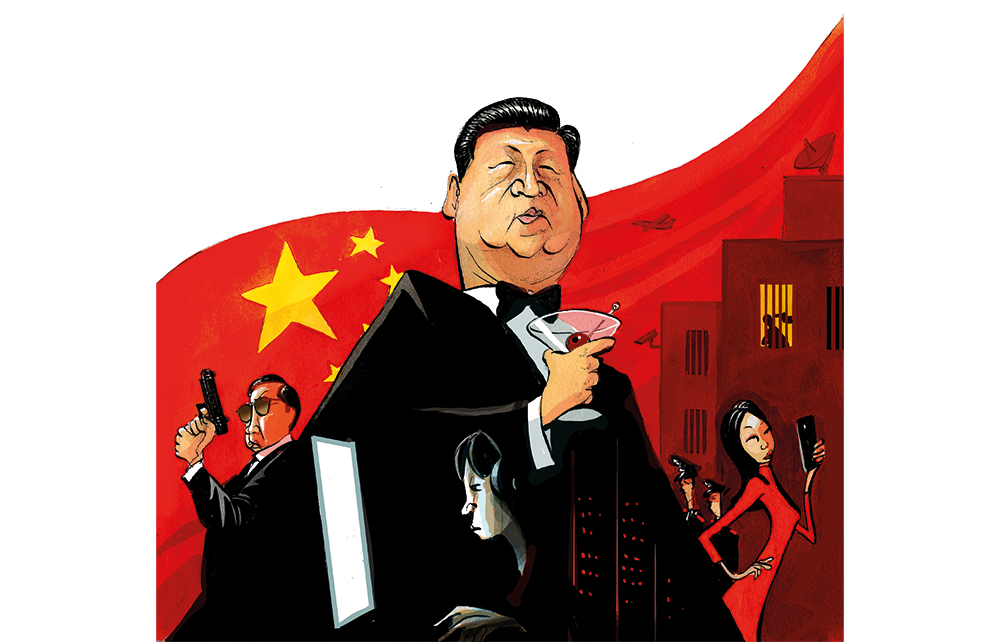Only in Britain could a spy trial collapse because no one in government could decide who the enemy was. The case against two men accused of passing secrets to China did not fail for lack of evidence or investigative effort, but because the Crown Prosecution Service could not extract from Whitehall a simple statement that China was, at the time, a ‘threat to national security.’ Without that label, the law would not allow the case to proceed. A nation that once prided itself on clarity of purpose now finds itself paralysed by its own semantics.
A nation that once prided itself on clarity of purpose now finds itself paralysed by its own semantics
The farce is revealing. It is not merely a procedural mishap but a symptom of how Britain conducts foreign policy in the age of China – through legalism, hedging and equivocation. The Director of Public Prosecutions admitted that his office had tried for months to obtain the necessary confirmation from the government, but ‘further evidence was not forthcoming.’ Translation: no one dared put it in writing. It is a case study in how ambiguity has replaced strategy in Whitehall.
The government’s long-promised China strategy remains unpublished. The reason is no mystery: Whitehall cannot agree on what it should say. The intelligence and defence establishment regard Beijing as a systemic rival engaged in espionage and subversion. The Treasury and business departments still speak of trade, access and investment. Between fear and hope, threat and profit, no consensus can be reached. So the document sits in limbo – unwritten, undenied, unspoken. Silence has become policy.
Meanwhile, the world is hardening into camps. China is no longer content to compete within the western-led system; it is constructing an alternative one. Through the Belt and Road Initiative, BRICS+, and the Shanghai Cooperation Organisation, Beijing is building a network of client states and dependencies – a rival order founded on authoritarian capitalism and the promise of prosperity without democracy. That vision is finding a receptive audience across the Global South, where western lectures on governance sound faint beside Chinese offers of ports, railways and loans.
The US-led order, by contrast, looks weary. Democracy and globalisation are both in retreat. Chinese influence is rising in regions once assumed to be safely western. Even in Europe, faith in America’s constancy is eroding. The world is dividing, and Britain must decide which side it is on. Will it help defend the liberal order that has guaranteed its security and prosperity for three quarters of a century, or will it hedge its bets, hoping that a middle ground still exists? At present it is doing the worst of both, professing loyalty to Washington while quietly courting Beijing. It convinces neither.
Britain’s economic relationship with China hardly justifies such caution. China is only the UK’s fifth-largest trading partner, accounting for roughly 5 per cent of total trade. Chinese investment in Britain is negligible – around 0.2 per cent of total FDI stock – and British exports to China have fallen in recent years. The much-touted dependency is more myth than fact. For all the talk of ‘engagement,’ China matters less to Britain’s prosperity than Ireland or the Netherlands.
Yet dependence of another kind is undeniable. Like every western country, Britain relies on China for the raw materials and components that underpin both its civilian and military strength. The magnets that turn wind turbines, the lithium that powers electric cars, the rare earths inside precision-guided missiles – all flow through Chinese supply chains. Such is the UK’s reliance on China for its defence industrial base that it could only rearm with Beijing’s acquiescence. In that sense, London’s caution is understandable: you cannot easily alienate a supplier who controls the means of your own rearmament.
But prudence should not mean paralysis. To be truly strategic would mean acting now to end that dependence, not pretending it can be managed indefinitely. Other powers have already begun to do this. Washington is rebuilding industrial capacity at home. Brussels has passed its Critical Raw Materials Act. Tokyo and Canberra are investing in alternative supply routes across the Indo-Pacific. Britain, by contrast, remains stuck at the stage of ‘reviews,’ ‘audits,’ and ‘frameworks.’ It neither confronts China nor frees itself from her grip. This is drift disguised as pragmatism.
The spy trial’s collapse is more than a legal oddity. It exposes the deeper intellectual weakness of modern British statecraft: the belief that problems can be managed forever by process, consultation, and careful language. Ministers talk of ‘balance’ and ‘engagement,’ but what they mean is hesitation. By avoiding hard choices, they imagine they are being subtle. In reality, they are becoming irrelevant. Allies are already adapting to the new divide – one that London still pretends can be finessed.
If that division continues to widen, the middle ground will disappear altogether. Britain’s alliance with Washington is indispensable: the United States is the UK’s largest trading partner, three and a half times more important than China, and the source of a third of all foreign investment. The tech relationship is also deepening, as shown by the investment announced during President Trump’s recent state visit. To alienate Washington by cosying up to Beijing would be strategic folly. To antagonise Beijing without strengthening national resilience would be worse. Yet that is exactly where current policy leads. It is an attempt to split the difference that satisfies no one.
The deeper problem is cultural. Britain’s governing class has come to mistake administration for strategy. The old habits of decisive statecraft – naming threats, choosing alliances and acting on principle – have been replaced by bureaucratic caution and moral hesitation. When the world turns dangerous, this is a fatal instinct. The irony of the spy trial is that the lawyers were waiting for politicians to lead, while the politicians were waiting for the lawyers to advise. In the end, both did nothing.
Britain once understood that order abroad depends on order at home: clarity of purpose, unity of command, confidence in one’s civilisation. Those virtues built the western order that China now seeks to replace, and they are the qualities Britain most conspicuously lacks. The vanishing enemy in the courtroom mirrors a vanishing sense of national purpose. A country cannot defend an order it no longer believes in. If Britain wishes to remain part of the world it helped to create, it must act like it. London has to name its adversaries, defend its interests, and work with its allies to secure its power. The mandarins of Whitehall can audit forever, but the world will not wait for them. In the great game of nations, the neutral player is merely the next pawn to be taken.







Comments